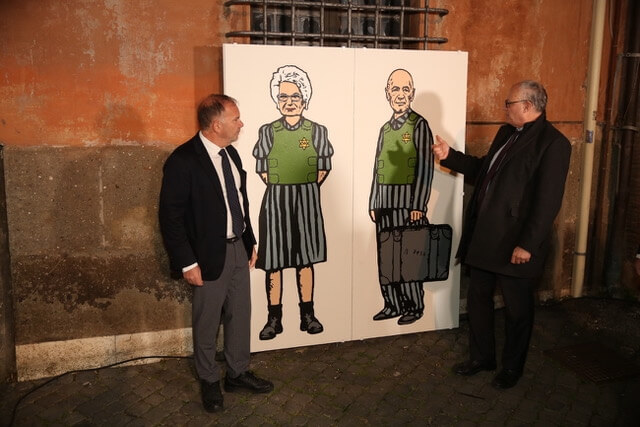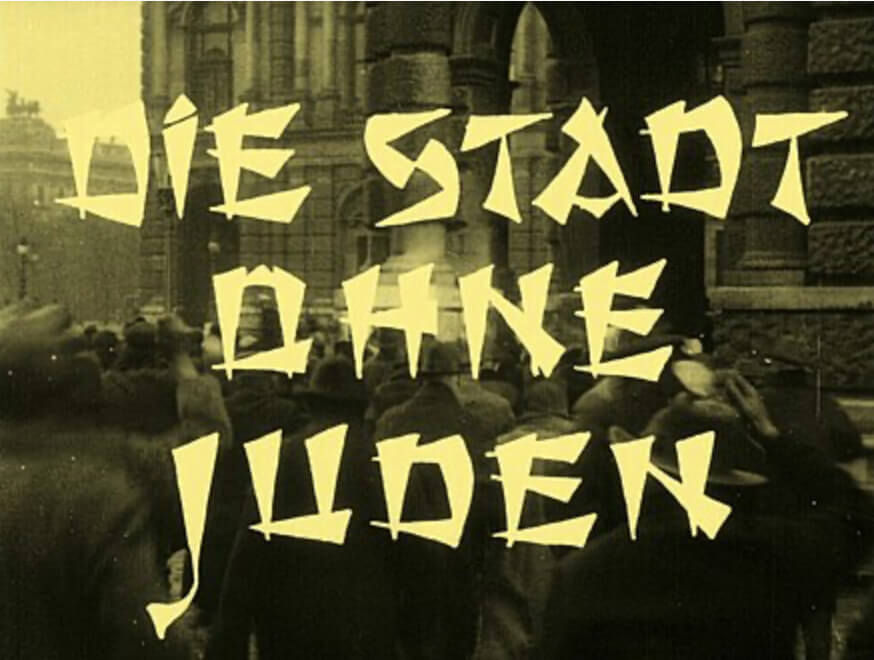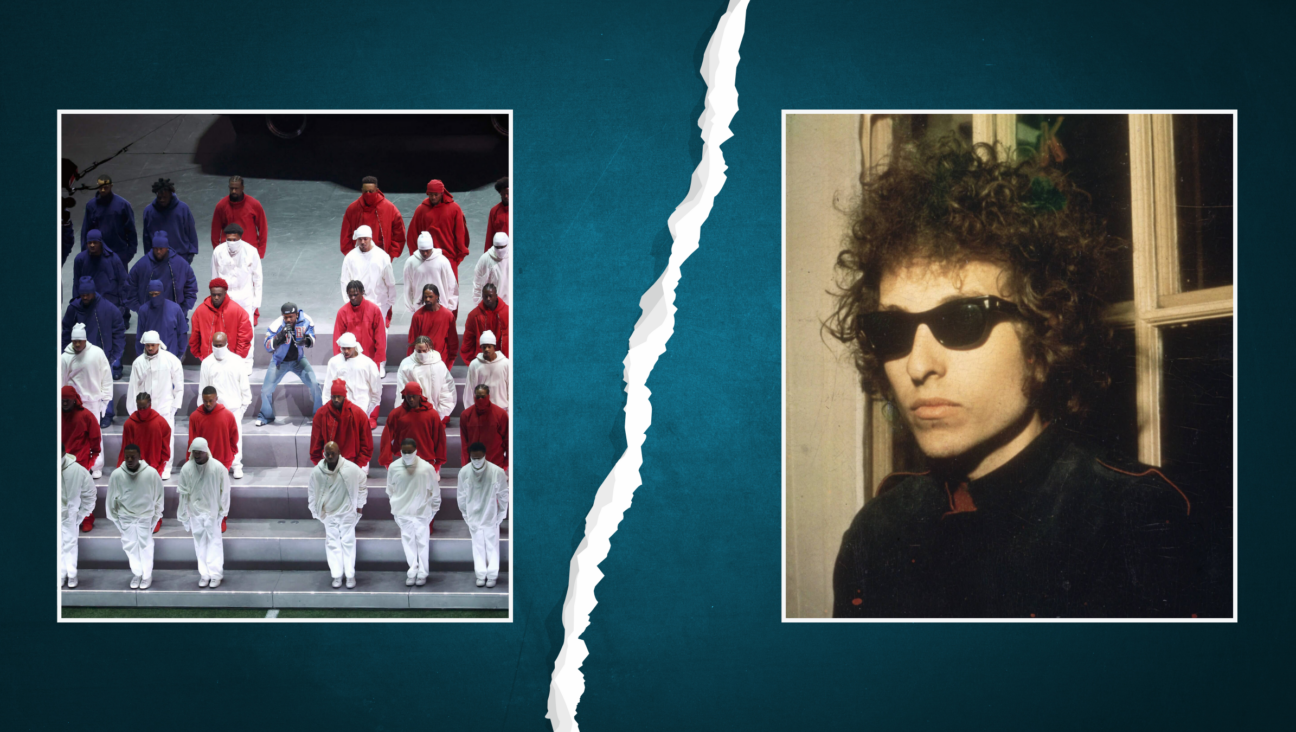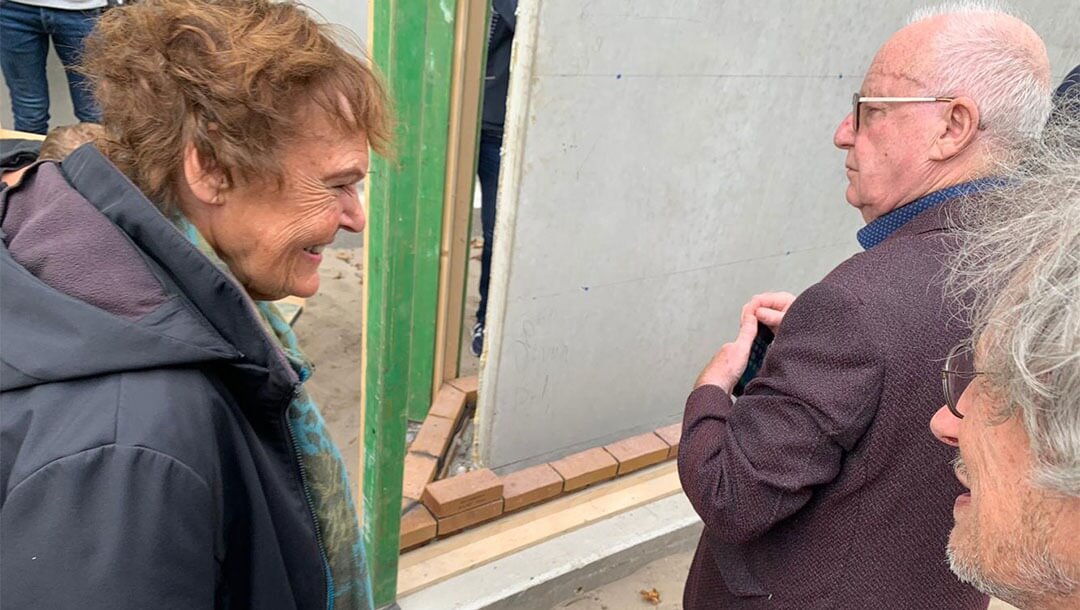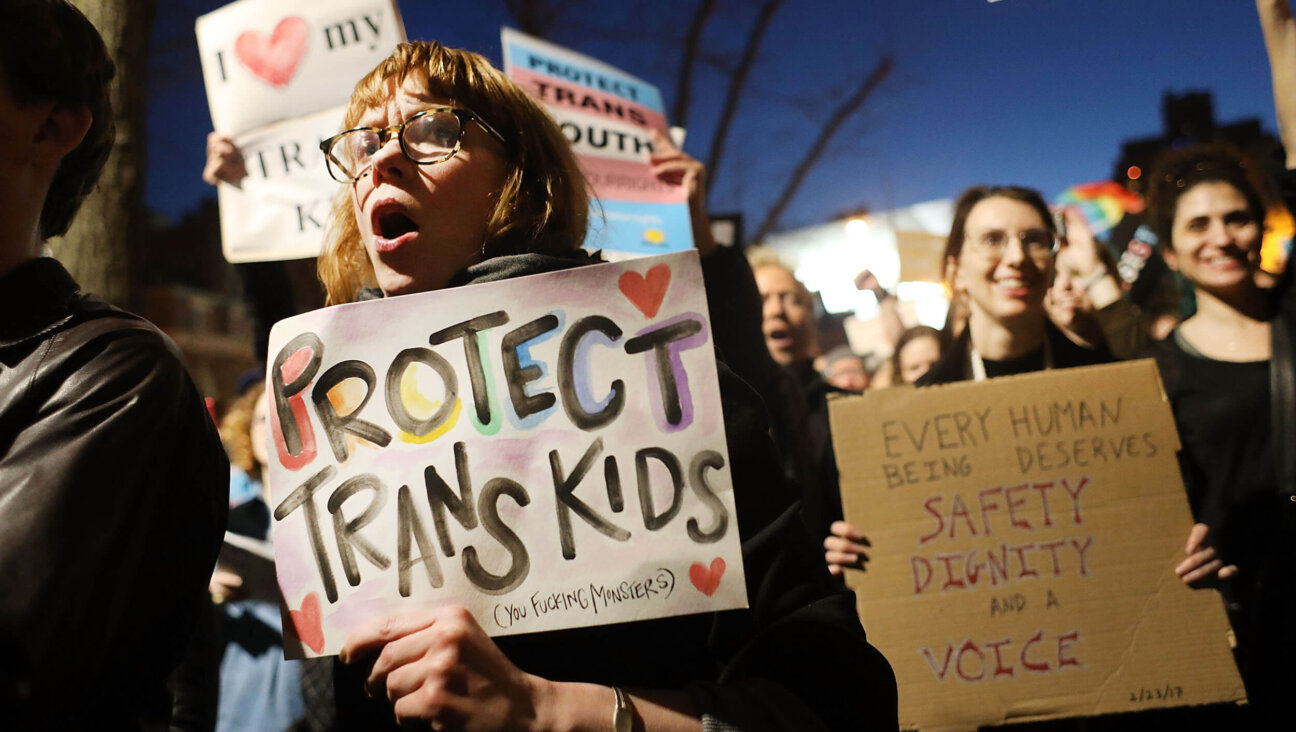An Israeli superhero is the least of the problems with ‘Captain America: Brave New World’
Pro-Palestinians picketed the film for its inclusion of Shira Haas’ character. It wasn’t worth the protest

Captain America: Brave New World might be Marvel’s most misbegotten movie yet. Courtesy of Marvel
Throughout Captain America: Brave New World, Israeli actress Shira Haas’ character stops the action to moon over the beauty of Tel Aviv’s beaches, mention her West Bank settler uncle Menachem and recall the wonderful day during her IDF service when she arrested a Palestinian child for throwing a stone in Jenin.
I am, of course, joking, but you wouldn’t know it by the early reactions.
Dozens of protesters showed up to the L.A. premiere, accusing Marvel Studios of complicity in genocide. On social media, you can find commenters on Haas’ red carpet look calling to pelt her with tomatoes.
The ballyhoo is predictable. Haas’ role, Ruth Bat-Seraph, aka Sabra, is, in the comics, a Mossad-trained mutant who needs the Hulk to convince her of the humanity of Arab children. But, after baseless rumors that she was being retconned to be Russian for her film debut, producers confirmed that she would remain Israeli, with a bit of a tweak to her powers and provenance.
Bat-Seraph is security advisor to Harrison Ford’s President Thaddeus “Thunderbolt” Ross. Anthony Mackie’s Captain America, Sam Wilson, is suspicious of her, and asks his comrade Joaquin Torres (Danny Ramirez) to do some digging on her background.
“Ross’ advisor, Ruth Bat-Seraph? She was born in Israel and trained in the Red Room,” Torres tells him. “She’s ex-widow,” meaning she, like Scarlett Johansson’s Black Widow, is an elite assassin who, as a kid, learned to field-strip guns in between ballet class as part of a government program.
“That means stay the hell out of her way,” Wilson says, unwittingly echoing the consensus of those calling to boycott the film.
That line about her being born in Israel? That’s all we get. We don’t even know if she stayed in the country or went to the Red Room in Russia soon after (Black Widows are usually selected shortly after birth). So her moniker Sabra applies in the general sense — this is the nickname for Jews born in Israel — it is not, as social media insists, a reference to the Sabra and Shatilla massacre in Lebanon that occurred two years after her introduction — but it’s certainly not used in the film.
Those who would object to this detail alone would seem to take primary issue with the existence of a territory called Israel, and the fact that sometimes children are born there.
Even so, the film, which had a long and troubled production history, a title change and five screenwriters, shows some forensic signs of earlier drafts.
It makes more sense, given that Ruth spends much of her early screen time combing through CCTV footage and interrogating would-be assassins, that she would have a background in Israeli security, whether Mossad or Shin Bet. But the flick is honestly such a dog’s breakfast — both in its politics and its overall presentation — that it hardly matters if the Israel and Gaza of it all is what you have a problem with.
Julius Onah, the talented Nigerian-American director behind 2019’s Luce, a chilling consideration of an adopted Black high school student buckling from the pressure of having to be more perfect than his white peers, tackles a similar theme here (with more mixed results).

Captain America: Brave New World Photo by VALERIE MACON/AFP via Getty Images
Sam Wilson’s Cap, following the tough act of his blond-haired, blue-eyed predecessor, feels unequal to the job, knowing his Blackness will be used against him if he fails, and that he’s a representative and role model for a marginalized community of millions. That’s a statement when the current administration treats Diversity, Equity and Inclusion like four-letter words.
There are also near critiques of American imperialism and resource theft, as Ford’s Ross tries to hammer out a treaty for the use of a new element found in the Indian Ocean called adamantium (not to be confused with vibranium) and his Japanese counterpart accuses him of wanting it for himself. Ross is a president with a controversial record for his pre-Oval Office life, where he cracked down on super-powered individuals — and hunted those who wouldn’t comply — and for imprisoning this film’s main villain.
At the same time, there’s an appearance by the “Forgotten Captain America,” Isaiah Bradley, who, in a nod to such American monstrosities as the Tuskegee Experiment, received the first dose of super soldier serum only to be discarded by his government. This film would seem to have a progressive bent, until it doesn’t.
Leaving aside Sabra, Ross has a redemption arc that somehow insists on the ultimate honor of an American president to do the right thing. It reads as wish fulfillment — and it will annoy critics of both Biden and Trump, both of whom Ford resembles at times in the film’s mercifully short runtime.
The reasons behind the plot’s main events are so cartoonish and mawkish that any real-world geopolitical conflict can’t be considered at the same time. But then, perhaps I’m being obtuse.
Those who won’t see the film, or are picketing it, have complaints beyond its content; even the casting of an Israeli actor can be perceived as a sort of hasbara, and Haas played a part in Israel’s social media campaign after Oct. 7.
But if you ask me, unless you’re ideologically motivated to support Haas with your dollar, you can just as soon skip this one, for reasons that have nothing to do with Israel. (Spoiler so you can get home earlier: the post-credit scene teases yet more alternate universes.)
A message from our Publisher & CEO Rachel Fishman Feddersen

I hope you appreciated this article. Before you go, I’d like to ask you to please support the Forward’s award-winning, nonprofit journalism so that we can be prepared for whatever news 2025 brings.
At a time when other newsrooms are closing or cutting back, the Forward has removed its paywall and invested additional resources to report on the ground from Israel and around the U.S. on the impact of the war, rising antisemitism and polarized discourse.
Readers like you make it all possible. Support our work by becoming a Forward Member and connect with our journalism and your community.
— Rachel Fishman Feddersen, Publisher and CEO










